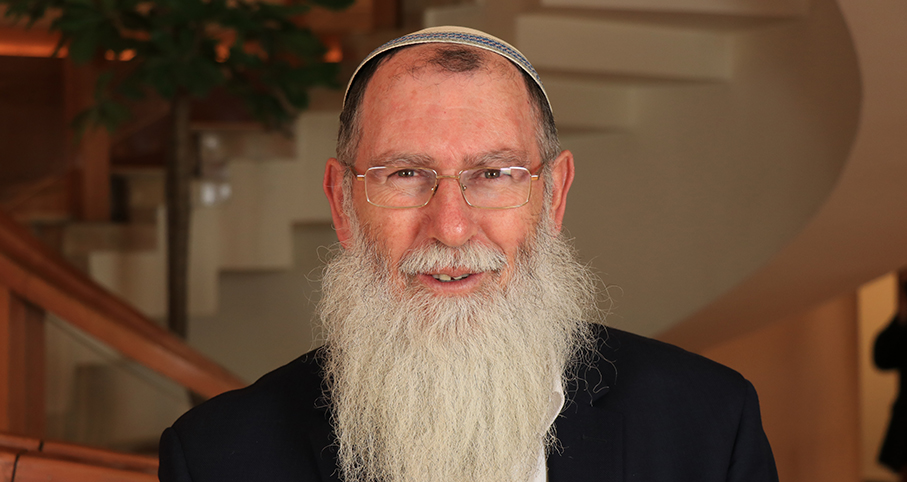Beit Midrash
- Family and Society
- Financial Laws and Tzedaka
- Theft and Damage
- Family and Society
- Kashrut
- The Laws of Kashrut
He took a break from his critiquing, and allowed himself a moment to enjoy the view that lay before him. The staff had scrubbed the expansive windows just that morning, allowing Mr. Samuels an unimpeded view of the ocean waters, as they gently lapped against the shore of his private island. A look at the interior of the mansion confirmed his conviction that the decorator whom Mr. Samuels had selected had been the one for the job. The carpeting, painting, lighting, molding, and myriad other details came together seamlessly to proclaim ‘tasteful, yet elegant.’
Of course, the resort wasn’t just about luxury for its own sake. As a well-known philanthropist, Mr. Samuels frequently entertained all manner of businessman, lay leaders, and other important individuals. The impression made by both his primary and resort homes was essential in establishing the confidence of his notable guests.
Yes, wealth and power were not an infrequent sight in his home. Today, however, was special. In just minutes, none other than Rabbi Mordechai Eliyahu, the Sefardi Chief Rabbi, was due to arrive, together with his assistants. Mr. Samuels took one last look at the table. The tablecloth, the silverware, the cloth napkins, and, of course, the solid gold plates, purchased specially for this occasion.
Mr. Samuel’s private plane, bearing the great Torah giant, made contact with the landing strip. Mr. Samuel’s rushed to escort his honored guest into the mansion. "We’re so honored to have the great rabbi with us! Please, come join us in the dining room for a meal!"
As the guests seated themselves at the table, Mr. Samuels hurried to point out the recent purchase. "In the rabbi’s honor, we have purchased plates made of solid gold!"
"I’m greatly honored!" enthused Rabbi Eliyahu. "I’ve never seen such beautiful plates before. Of course, being that the plates are new, I assume that the plates underwent tevilat keilim." 1
Mr. Samuels clapped his hands to his mouth. "I… I completely forgot. Does… does that mean that we can’t use them?"
"Is there any access to the ocean from here?" inquired Rabbi Eliyahu. "If there is, we can tovel the dishes right here!"
Mr. Samuels resumed breathing. "Well, it is technically possible. It would involve carrying the dishes down a rope ladder, which leads directly into the sea. Of course, my waiters would be more than happy to do it right away!"
"Thank you for the offer." Rabbi Eliyahu smiled. "I would prefer that my assistant, Rabbi Gavriel Cohen, be the one to perform the tevila."
Mr. Samuels quickly organized the mission. Rabbi Cohen headed down the ladder, as the waiters hurried to pass the plates from hand to hand. Mr. Samuels watched with great amusement, as his dishes headed down the ladder to be dunked, and then back up again. His staff and Rabbi Cohen seemed to be taking part in an adult relay race. Within half an hour, Rabbi Cohen hoisted himself up over the top of the rope ladder. He was soaked from head to toe, and his face bore an expression of contrition.
"I’m terribly sorry, but several gold plates fell out of my hands, into the ocean."
Mr. Samuels interrupted Rabbi Cohen’s apologies with a dismissive wave of his hand. "Please, there’s nothing to be sorry about. I haven’t seen such an amusing scene in a long time! Forget about the lost dishes. As soon as the waiters have dried everything, we’ll enjoy a festive meal together."
If Mr. Samuels had, indeed, requested compensation from Rabbi Cohen for the lost dishes, would Rabbi Cohen have been required to pay for them?
Answer of Rabbi Shmuel Eliyahu, shlita:
Rabbi Cohen had the status of ‘shomer chinam’ (unpaid guardian). A shomer chinam is absolved from payment for loss of the object he is watching, if the object is lost or stolen. However, if a shomer chinam is negligent, he is required to pay for loss of the object.
In our case, the dishes falling in the water during tevila was not considered an act of negligence. This is similar to the case of a person who moves a barrel from one house to another, on behalf of his friend. If the barrel were to be damaged in the course of the move, the one who moved it would not be held liable. The damage falls under the category of oness (a forced action), and not negligence. (See Bava Metzia 82b, and Shulchan Aruch choshen mishpat 304,1).
In summary: Rabbi Gavriel Cohen was not required to pay for the plates which fell into the ocean.
(The story comes from Avihem Shel Yisrael, part 2, pg. 147. It is told by Yigal Kotai, Chevron.)
^ 1.If a Jew takes ownership of a glass or metal utensil used for food preparation or service, it is required that the utensil first be immersed in a mikva or, alternatively, a natural body of water, before being used to prepare or serve food. This immersion is referred to as tevilat keilim.
An Oily Start
At the Shabbat Table
Rabbi Daniel Kirsch | Av 19 5780
Rescued from the Ashes
At the Shabbat Table
Rabbi Daniel Kirsch | Kislev 13 5781

Who Should Pay a Ticket?
Rabbi Daniel Mann | Cheshvan 6 5780
























